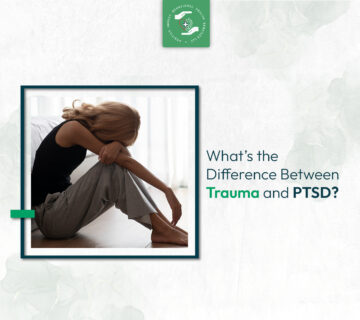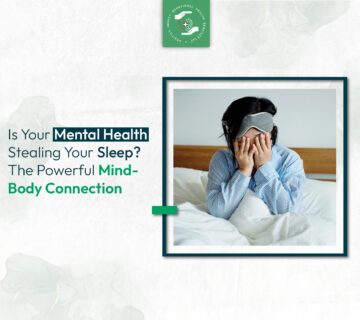Exploring the contrasts and synergies between holistic mental health approaches and traditional therapy to offer insights into their effectiveness, principles, and methodologies.
Understanding Holistic Mental Health
Holistic mental health represents a comprehensive approach, aiming to treat the individual as a whole. This means not only addressing symptoms but also considering emotional, spiritual, and physical aspects of a person’s well-being. It’s a quest to understand the root causes of distress, which can involve lifestyle adjustments, dietary changes, and incorporation of mindfulness practices.
The essence of holistic mental health lies in its personalization of care. Each person’s journey is unique, and thus, the treatment strategies are tailored to meet their specific needs and goals. This often involves a variety of techniques including, but not limited to, meditation, yoga, and natural supplements, alongside more traditional psychotherapeutic methods.
Principles of Traditional Therapy
Traditional therapy, often referred to as Western therapy, places a significant emphasis on diagnosing and treating mental disorders primarily through talk therapy. The relationship between therapist and patient is central, with methodologies like cognitive-behavioral therapy (CBT), psychoanalysis, and other forms of psychotherapy dominating the space.
A hallmark of traditional therapy is its reliance on empirical evidence and standardized treatment protocols. This means treatments have been widely studied, with documented effectiveness across various populations. However, this approach can sometimes lead to a more generalized treatment method that may not address all aspects of an individual’s well-being.
Comparing Approaches: Treatment Methods
When comparing holistic mental health to traditional therapy, the difference in treatment methods is stark. Holistic approaches are diverse, incorporating elements from various disciplines outside of psychology, such as naturopathy and traditional Chinese medicine. In contrast, traditional therapy tends to focus on cognitive and behavioral change through dialogue.
The integration of diverse practices in holistic mental health can offer a more rounded approach but may lack the extensive scientific evidence base that traditional therapy brings. On the other side, the structured nature of traditional therapeutic practices offers predictability and a track record of success for many, yet might not fully embrace the individual’s lifestyle and physical health as part of the treatment plan.
The Role of Medication in Each Approach
Medication is another critical point of divergence between holistic mental health and traditional therapy. In conventional settings, psychiatrists often prescribe medication to manage symptoms, based on the understanding that mental health issues can stem from chemical imbalances or other biological factors.
Conversely, holistic practitioners might view medication as a last resort, focusing first on natural remedies and lifestyle changes to restore balance. When medication is used in holistic practices, it is usually in conjunction with other natural therapies aimed at healing the person as a whole.
Benefits of Holistic Approaches
One of the primary benefits of holistic approaches to mental health is their capacity to customize treatments to the individual. This can lead to a more satisfying and empowering experience for the patient, as they feel their overall lifestyle and beliefs are taken into account.
Additionally, holistic mental health often introduces individuals to tools and practices for self-care and well-being that can serve them throughout their lives, far beyond the treatment of specific symptoms. This can foster a lasting foundation for mental resilience and health.
Effectiveness of Traditional Therapy
Traditional therapy’s effectiveness is well-documented, with a wealth of scientific research supporting its methods. It offers a structured approach that can be particularly beneficial for individuals dealing with severe mental health conditions that benefit from specific treatment plans and the potential use of medication.
For many, the predictability and familiarity of traditional therapy provide a sense of security and trust in the treatment process, which is an essential component of therapeutic success.
Choosing What’s Best for You
Deciding between holistic mental health practices and traditional therapy is deeply personal. It depends on one’s beliefs, the severity of their condition, and their specific needs. Some may find solace in the comprehensive nature of holistic practices, while others may prefer the structure and evidence-based methodologies of traditional therapy.
Engaging in self-reflection about what you hope to achieve through therapy can guide this decision. It’s also beneficial to consult professionals from both realms to gain insight into what each can offer in the context of your personal mental health journey.
Integrating Holistic Practices into Traditional Therapy
An emerging trend is the integration of holistic practices into traditional therapy settings, recognizing that a comprehensive approach can enhance treatment outcomes. This can look like therapists incorporating mindfulness techniques, dietary consultations, or movement practices such as yoga into their sessions.
This blend acknowledges the multifaceted nature of mental health and opens the door for a more personalized and effective therapeutic experience. By combining the strengths of both approaches, individuals have the opportunity to explore a wide range of tools and strategies for achieving mental well-being.
Integrating Best Practices for Optimal Mental Health
Choosing between holistic mental health practices and traditional therapy depends on individual needs, preferences, and the specific mental health challenges one is facing. Both have their strengths, and sometimes, a combination of the two provides the most comprehensive approach to mental well-being.






No comment